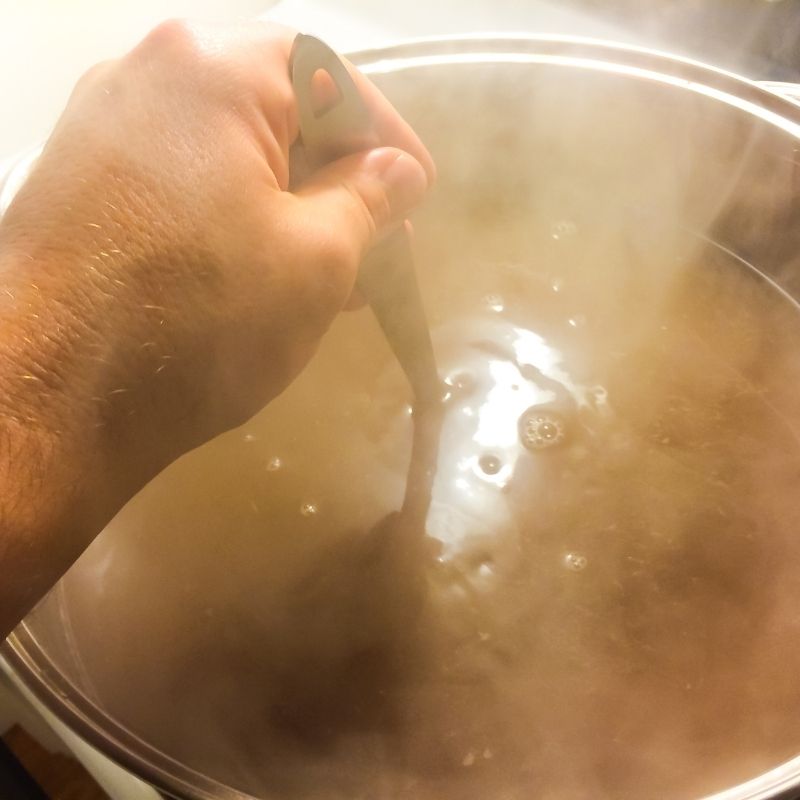 Many people get into home brewing beer with a mild interest to craft their own draft and maybe save some money. What starts out as a general hobby often turns into a full on passion for homebrewing. This enthusiasm and excitement often causes the beginning homebrewer to get ahead of themselves which can cause mistakes.
Many people get into home brewing beer with a mild interest to craft their own draft and maybe save some money. What starts out as a general hobby often turns into a full on passion for homebrewing. This enthusiasm and excitement often causes the beginning homebrewer to get ahead of themselves which can cause mistakes.
Mistakes are a learning opportunity and everyone makes them, although no one is happy about wasting their time or money not to mention the disappointment when ruining a batch. Here are some of the most common mistakes that beginning programmers make and tips on how to avoid them.
1) Not Cleaning and Sanitizing Properly
Homebrewing can get messy and keeping things cleaned and sanitized is not only necessary, it is the most important practice to protect the flavor and quality of your homebrew. Fermentation is the key process in homebrewing and there are good and bad types of fermentation. Dirty brewing equipment, surfaces, and hands will all introduce bacteria and other contaminants that will ruin your batch.
You should always use a cleansing and sanitizing solution made specifically for homebrewers. Replace equipment that gets dented or scratched as they will store more bacteria in cracks and crevices. The importance of cleaning and sanitizing cannot be overstated and be sure you recognize the difference between the two. Continual cleaning gets rid of dirt and grime as well as fats and proteins that will ruin the fermentation and flavor. Sanitizing, however, does not require any elbow grease, it does ward off unwanted bacteria that cleaning does not.
2) Using Poor Quality Water
Water is the most abundant and cheapest ingredient in your homebrew, yet some brewers may think it’s okay to use tap water. Even if your tap water tastes fine, it could do more harm than good to your homebrew. Chlorinated and unfiltered water can give your beer funky flavors like a metallic or a plastic taste. Additionally, the ion profile and pH level of your water can alter the beers final pH, gravity, and finished taste. Most experienced brewers choose to use spring water or water that has been through a deionized filtration or reverse osmosis process.
3) Cooling Your Wort Uncovered
Uncovering your wort while it is cooling is asking for trouble. While it is important to cool your wort quickly, taking the lid off will allow bacteria and foreign particles to contaminate it. Be sure to leave the lid on to safely and slowly cool your wort. A better option is to get a wort chiller to accelerate the process without the risk of contamination.
4) Not Controlling the Temperature
Beginning homebrewer’s often neglect to monitor and control the temperature during fermentation. The fermentation process alone can increase the temperature by as much as 7°F, which can over sweeten your batch and increase the alcohol content. Make sure that you have a thermometer and follow the directions on your yeast packaging which should include the ideal temperature ranges for fermentation and storage. Beginning homebrewers should always monitor the temperature of the wort while cooking as a boilover will get really messy.
5) Creating a Boilover
Nothing strikes fear into the heart of homebrewers like experiencing a boilover. The sugars and ingredients that make wort a wonderful base for good beer become a gooey, sticky mess when boiled over on your stovetop. Continually monitor the temperature and regularly stir your wort when boiling. One trick homebrewer’s use is to add glass marbles to the bottom of the kettle as they are inert, will not affect the flavor of your beer and are safe to boil. They help to prevent boil-overs by breaking up big bubbles into smaller ones. It is the big burps from your kettle that typically cause the boilover mess.
Follow these tips to help prevent common homebrewing mistakes, and let RainMakers Supply guide you in best practices for homebrewing success.
RainMakers Supply is your one-stop for all equipment and ingredients needed for quality home brewing beer. Our master brewers are eager to share their extensive knowledge and tips to help you brew your best batch whether starting a new hobby or looking to experiment with new flavors. Contact us with any questions and let us help you prevent common mistakes when home brewing beer.
